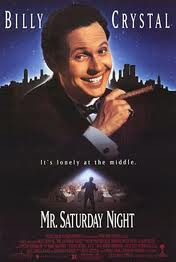
The question is:
Is it a right way of approach to work on character development before working on outline/structure of the story/screenplay?
One of my friend says due to character development i couldnt able to proceed further and thats why i got stuck in the middle of my screenplay process.
But I beleive in giving importance to Character dev in scripts, so i started Developing Characters after deciding a theme for my Short...
What is ur Opinion regarding the process which i follow?
What ever the UR opinion, Comments are always welcome
And here’s my response.
Take heart from the fact that you are stuck: it's the writer in you telling you that something is wrong, and that's a good instinct. Many people would just keep writing on and on, to no purpose. Meanwhile you,by being stuck you're on the road to getting it right. Did you know Mozart wrote to his father complaining that he'd never finish Act 2 of Don Giovanni? If Mozart had problems, there's hope for all of us!
As so many people are saying, your problem is lack of planning. It's a very common problem, so you're not alone. We've all been there. Script structure is a craft, but it’s always maddening because every script presents new structure problems.
As for whether to work on character before story and whether one can spend too much time on character, it’s very easy indeed to get stuck working on character or theme, then to believe that everything you know about the character and theme is in the script when in fact it's still in your head and not actually on the page. For example, I once read a script that had a character who was supposed to be a loner. But there were no scenes showing that character on its own, actually being a loner. Character can only be demonstrated via action. Your story must reveal everything that you want to say about character and theme via very specific action. In other words, if your message 'slow and steady wins the race' you need to create a storyline like the hare and the tortoise fable, not a story about a tortoise who has some unconnected adventure. That sounds easy. It isn't. We all love writing and we can easily get dragged off the point.
So, don’t think about a character in isolation. Think about what it might do, how it might react. Think about how the character's specific characteristics can be demonstrated in action, how the action can put the characters in jeopardy. For example, if your intention is to write about a miser, create a plot in which the miser has to spend money. That way, your central character concern is at the heart of the central plot. Don’t plan to write a film about a miser in which miserliness appears only in a couple of scenes and the rest of the film is about something completely different.
I notice that you mention that you started writing your film from theme and character. You don’t mention story. This is something that nobody has raised and it might be affecting you. Often, the initial idea for a film is a theme or a character, not a story. In other words, you might think: 'I want to write a film about bullying’ but you don’t have a story or characters yet. Or, your idea might be ‘I want to write about a dysfunctional family in which the son is a bully'.There, you have the characters and theme but not a plotline. In that situation it is very easy just to write characters behaving characteristically. The bully acts as a bully in one way, then he acts as a bully in another way, then he acts as bully in a third way, and so on. If you’re a good writer, it’s easy to keep writing for quite a long while, but then you will stop because what you have written is repetitive. You are right to stop – or your audience will say: ‘Okay, okay, I get it that this guy is a bully– and? What now?’
To create a film rather than a character study, you need a story. You need to put the family and a bully in a situation that will permit them not only to interact, but to be different at the end (not necessarily happy - they could end up killing each other, the point is there must be a story).
Can you check whether you yet have a story that properly illustrates your theme? And whether you have characters in action rather than characters repeating their own characteristics in different ways. This sounds insulting but it happens very easily. Watch Mr Saturday Night – in that you have a self-destructive bullying comedian being a self-destructive bullying comedian in a million different ways. No story. Billy Crystal gives a wonderful performance but the film is boring because so much of it is just the character doing the same routine.
The easiest way to understand this problem is to realise that films always have firstly what I call an action line (and others call 'the main plot, for example, inThelma and Louise, the action line is the drive across country, with all its events). Secondly, they will always have what I call ‘a relationship line’ (what others call a subplot, which is to do with characters and character interaction, and is often the love story). In Thelma and Louise, the relationship line is about how events force two respectable women to become bandits and to kill themselves. There is a plot for each of these storylines, and if you split them up you’ll be able to pinpoint problems and handle them much more easily. The point here, so well illustrated in Thelma and Louise, is that in a film the action line forces the relationship line to happen. Use that as a motto.
As I said, you need to plan. So, you now need to go back and work out, step by step what your story is, and whether it transmits the theme by forcing the relationship line to happen, then, when you have that structure, you can write in the scenes. Internal scene construction is hard enough to do without having to plan the movie as you go. You ask for help. In my book The 21st Century Screenplay I have created a step by step question and answer system planning system called Script Development Strategies that help you create a linear one hero three act structure (later in the book I also explain how to structure nonlinear and multiple storyline/protagonist scripts too , but that gets more complicated). A lot of film schools and pros use the Script Development strategies. Good luck! You will get there.

 RSS Feed
RSS Feed


